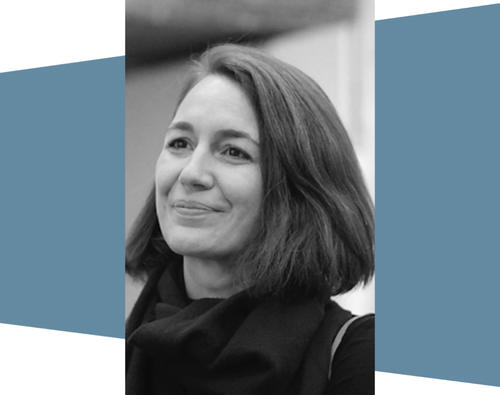Erika Balsom
Erika Balsom is Reader in Film Studies at King's College London and holds a PhD in "Modern Culture and Media" from Brown University. She has worked at Carleton University in Ottawa as well as at the University of California, Berkeley. Balsom’s research takes place at the intersection of artists' film and documentary and is interested in feminist perspectives and experimental practices in art and cinema.
In 2022, she co-curated the exhibition "No Master Territories: Feminist Worldmaking and the Moving Image" with Hila Peleg at the Haus der Kulturen der Welt in Berlin. The exhibition was centered on the question of how the moving image can be understood and used as a resource of feminist imagination. Simultaneously, Balsom and Peleg released the book Feminist Worldmaking and the Moving Image (2022). Most recently, Balsom's extensive essay TEN SKIES (2021) was published by Fireflies Press, in which she explores James Benning's documentary film of the same name.
Three Quick Questions:
In a few words, can you tell us about your current research interest?
I recently finished a large project that culminated in the exhibition "No Master Territories: Feminist Worldmaking and the Moving Image," which is currently on view at the Muzeum Sztuki Nowoczesnej in Warsaw. As a result, I’m now taking some time to regroup and reflect on my next steps. In the meantime I’m working on two articles: one on the extensive film programme that accompanied Jean-François Lyotard’s 1985 exhibition "Les immatériaux," and another on a cycle of recent works by the US artist Peggy Ahwesh that appropriate animated news footage from the internet.
How do you relate the term poiesis to your work?
Poiesis isn’t a word that I use often, but perhaps it resonates with something that is very important to me: a commitment to thinking about artistic practice in a holistic way. Sometimes, scholars cherry-pick works to put in dialogue with theory, instrumentalizing them and neglecting to attend to the contexts of their making. The latter is something that is very important to me, and has only become increasingly so in recent years when I have engaged more in activities of curating and criticism.
Which film or other audiovisual format has resonated with you lately and why?
Recently, I was a jury member at the Jeonju International Film Festival. We awarded the special jury prize to Paul Preciado’s Orlando: My Political Biography – a fun and whip-smart essay film that adapt and contests Woolf’s novel while translating Preciado's thinking into a gender- and genre-bending cinematic form.
